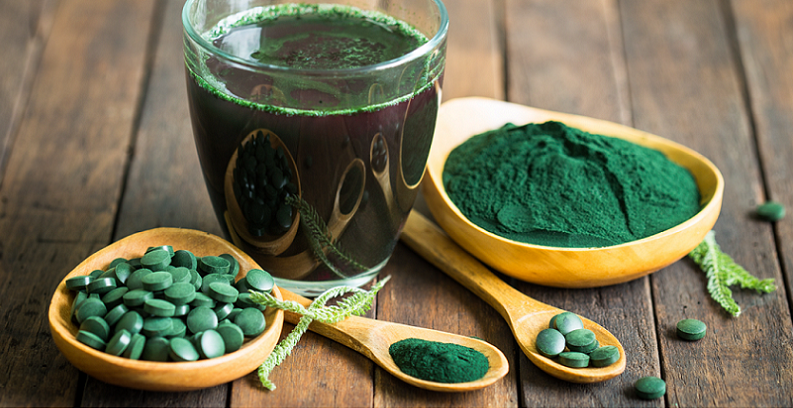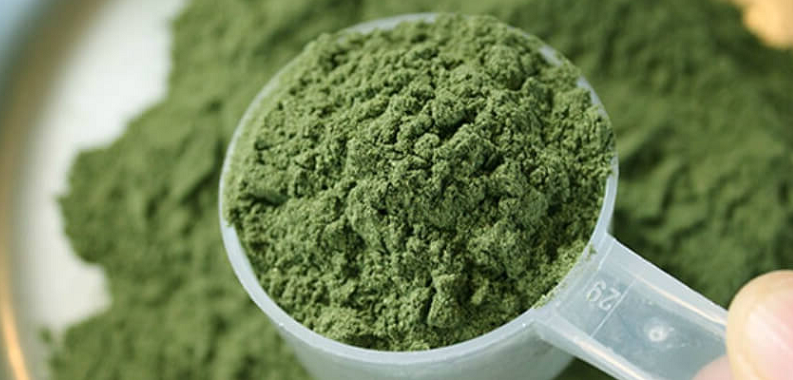
In recent years, the quest for optimal health and wellness has led many to turn their attention towards the burgeoning world of green supplements. These vibrant powders and capsules, derived from natural sources like spirulina, chlorella, wheatgrass, and various other greens, promise a plethora of health benefits ranging from boosted immunity to enhanced mental clarity. But as their popularity soars, a critical question emerges: Are green supplements truly the panacea they are made out to be, or is their acclaim more a product of adept marketing than of genuine health benefits?
Contents
Historical Context of Green Supplements
The journey of green supplements from nature’s bounty to our kitchen shelves is as rich and varied as the compounds they contain. Before we dive into the complex world of these vibrant powders and pills, it’s essential to understand their roots.
Origins of Green Supplements in Traditional Diets
Long before the advent of modern nutrition science, ancient civilizations recognized the value of green plants in their diets. These cultures, spread across different continents, intuitively knew that the vibrant colors of plants signaled a wealth of nutrients. For instance, ancient Egyptians revered wheatgrass for its health-promoting properties, while traditional Chinese medicine and Ayurveda in India utilized green herbs and algae like spirulina and chlorella to support overall well-being.
These traditional uses of green plants were not based on scientific analysis but on generations of observation and experience. The incorporation of these greens into diets was driven by a holistic view of health, where food was considered medicine, capable of healing and nourishing the body and mind.
Evolution from Ancient Remedies to Modern Supplements
As societies evolved, so did their approaches to health and nutrition. The transition from whole green foods to concentrated supplements is a testament to human innovation and the quest for convenience. The 20th century marked a significant turning point with the development of technologies that could extract and concentrate the beneficial compounds found in green plants, making it easier to consume their nutrients without having to eat large quantities of vegetation.
This technological advancement coincided with a growing interest in health and wellness, especially in Western societies, where diets often lacked sufficient quantities of fruits and vegetables. Green supplements offered a solution to this problem, providing a concentrated source of vitamins, minerals, and antioxidants in a convenient form. As scientific research began to uncover the specific health benefits of various green foods, the popularity of these supplements surged, leading to the diverse market we see today.
Cultural Significance Across Different Societies
The use of green plants for health has always carried a significant cultural and spiritual component. In many cultures, green foods are not just consumed for their nutritional value but are also imbued with symbolic meanings. For example, in Japan, the consumption of green tea is a centuries-old tradition that embodies purity, tranquility, and harmony with nature. Similarly, in many indigenous cultures, certain plants are considered sacred and are used in rituals and ceremonies to promote healing and spiritual well-being.
As green supplements gain popularity worldwide, they bring with them these layers of cultural significance. They are not merely products of nutritional science but also carriers of ancient traditions and wisdom. This intersection of health, culture, and spirituality enriches the narrative of green supplements, making them more than just a health product but a link to a deeper understanding of our relationship with nature [1].

What Are Green Supplements?
In the realm of nutritional supplements, green supplements stand out for their origin from plant-based sources and their promise of delivering a concentrated dose of nature’s best nutrients.
Types of Green Supplements
Green supplements come in various forms, each derived from different green plants known for their health benefits.
Spirulina and Chlorella
These algae-based supplements are renowned for their high protein content and a broad spectrum of vitamins and minerals. Spirulina and chlorella are often touted for their detoxifying properties, thanks to their ability to bind with heavy metals and other toxins.
Wheatgrass and Barley Grass
These young shoots of the wheat and barley plants are rich in chlorophyll, antioxidants, and enzymes. They are believed to support immune health and aid in detoxification.
Green Tea Extracts
Extracted from the leaves of the Camellia sinensis plant, green tea extracts are celebrated for their high antioxidant content, particularly epigallocatechin gallate (EGCG), which is linked to numerous health benefits, including enhanced metabolic rate and improved brain function.
Other Popular Greens
This category includes a variety of other plant-based supplements, such as kale, spinach, and broccoli powders, each offering its unique blend of nutrients and health benefits.
Key Ingredients and Their Nutritional Benefits
Green supplements are packed with a wide range of nutrients that contribute to their health-promoting properties/
Vitamins and Minerals
These supplements are a rich source of essential vitamins (such as A, C, E, and K) and minerals (including iron, calcium, and magnesium), crucial for maintaining health and preventing deficiencies [2].
Antioxidants
The high antioxidant content, including flavonoids and carotenoids, helps combat oxidative stress and reduces the risk of chronic diseases.
Fiber
Dietary fiber present in green supplements supports digestive health and promotes a feeling of fullness, aiding in weight management.
Protein
Certain green supplements, especially those derived from algae, provide a complete protein source, containing all nine essential amino acids necessary for muscle repair and growth.
Process of Manufacture
The journey from raw plant to supplement form involves several steps to ensure the final product is both potent and pure.
Sourcing of Ingredients
High-quality green supplements begin with the careful selection of raw materials, typically sourced from organic farms to avoid the presence of pesticides and contaminants [3].
Extraction and Processing Methods
The processing involves drying the plants, often through freeze-drying methods to preserve nutrients, followed by grinding into a powder or extracting specific compounds. This process is designed to concentrate the beneficial elements of the greens while eliminating unnecessary bulk.
Quality Control and Certification
Reputable manufacturers adhere to strict quality control standards, including third-party testing for purity and potency. Certifications, such as organic or non-GMO, serve as indicators of a supplement’s quality and safety.
Green Supplements Health Benefits and Scientific Evidence
The allure of green supplements is largely rooted in their purported health benefits, ranging from enhanced immune function to improved mental acuity.
Immune System Support
One of the most celebrated benefits of green supplements is their ability to bolster the immune system. Ingredients like spirulina, chlorella, and wheatgrass are rich in vitamins A, C, and E, which are known to enhance immune function. Studies have shown that these nutrients can help stimulate the production of antibodies and immune cells, potentially reducing the frequency of infections and illness. Additionally, the antioxidant properties of green supplements play a vital role in protecting immune cells from oxidative damage, further supporting the body’s defense mechanisms.
Detoxification and Digestive Health
Green supplements are often touted for their detoxifying effects, thanks to their high chlorophyll content. Chlorophyll has been linked to the body’s ability to bind and remove toxins and heavy metals, such as lead and mercury, from the bloodstream. Moreover, the fiber content in green supplements can promote digestive health by supporting regular bowel movements and maintaining a healthy gut microbiome. This, in turn, can enhance nutrient absorption and prevent digestive disorders.
Energy Levels and Metabolism
The nutritional composition of green supplements, particularly their high levels of B vitamins, iron, and magnesium, can have a positive impact on energy levels and metabolism. B vitamins play a crucial role in converting food into energy, while iron is essential for transporting oxygen in the blood, a key factor in energy production and endurance. Magnesium contributes to muscle function and energy synthesis. Clinical trials have reported that individuals consuming green supplements experience improvements in energy levels, exercise performance, and metabolic rate [4].
Mental Clarity and Focus
Emerging research suggests that certain green supplements, especially those containing green tea extracts, may enhance cognitive function. The presence of antioxidants like EGCG in green tea has been associated with neuroprotective effects, including improved brain health and reduced risk of neurodegenerative diseases. Some studies also indicate that green supplements can improve focus, concentration, and memory, likely due to their influence on brain blood flow and antioxidant capacity.
Review of Scientific Studies and Clinical Trials
While anecdotal evidence abounds regarding the health benefits of green supplements, it is essential to consider the scientific research and clinical trials that back these claims. A growing body of literature supports the positive impact of green supplements on immune health, detoxification, energy levels, and mental clarity. However, it is important to note that results can vary significantly depending on the type of supplement, dosage, and individual health conditions. Additionally, more research is needed to fully understand the long-term effects and optimal consumption patterns of green supplements.

Cultural and Spiritual Aspects of Green Supplements
Green supplements, with their roots deeply embedded in the earth’s flora, carry with them not just nutritional benefits but also a rich tapestry of cultural and spiritual significance.
Green Supplements in Traditional Medicine
Ayurveda
In the ancient Indian system of Ayurveda, green plants like moringa and holy basil are considered vital for their healing and balancing properties. These plants are used not only for their physical benefits but also for aligning the mind, body, and spirit. Green supplements derived from these herbs are seen as carriers of life energy or “prana,” essential for maintaining internal harmony and health [5].
Traditional Chinese Medicine (TCM)
Similarly, TCM incorporates a variety of green plants, such as green tea and certain algae, for their life-enhancing properties. In TCM, the emphasis is on the balance of the body’s energies, and green supplements are often prescribed to cleanse the liver (considered the seat of the life force), support digestion, and promote longevity.
Spiritual Significance of Green Foods
Beyond their use in traditional medicine, green foods and, by extension, green supplements hold significant spiritual symbolism in many cultures. The color green is universally associated with nature, growth, renewal, and vitality. In spiritual practices, consuming green foods is often thought to open the heart chakra, enhancing feelings of love, compassion, and connection to the earth. This spiritual dimension adds a layer of meaning to the consumption of green supplements, elevating them from a dietary addition to a ritual that nurtures both the body and the soul.
Integration into Modern Wellness Practices
Today, the cultural and spiritual aspects of green supplements are being rediscovered and integrated into modern wellness practices. This resurgence is part of a broader movement towards holistic health, where the goal is not just to prevent or treat illness but to achieve a state of complete physical, mental, and spiritual well-being. Yoga practitioners, meditation enthusiasts, and followers of holistic health regimes often incorporate green supplements into their routines, drawing on both their nutritional benefits and their ancient spiritual significance.
References
[1] Are greens powders actually beneficial? Our dietitian weighs in
[2] Your Diet Could Benefit From a Greens Supplement. Maybe.
[3] Dietitians Say Greens Powders May Not Be Worth the Squeeze — Here’s Why
[4] What Are Greens Powders – and Do You Need Them?
[5] What to know about greens powders

